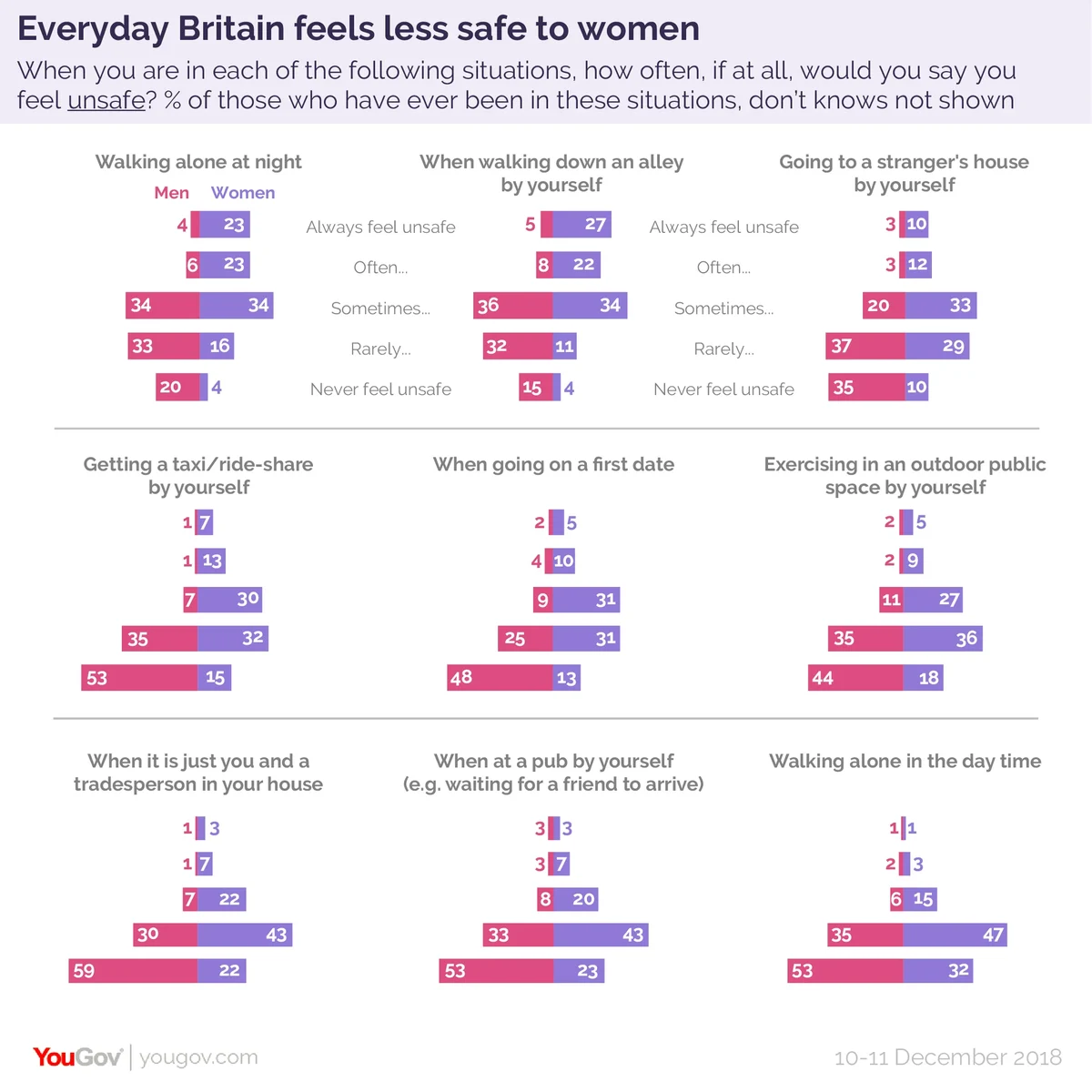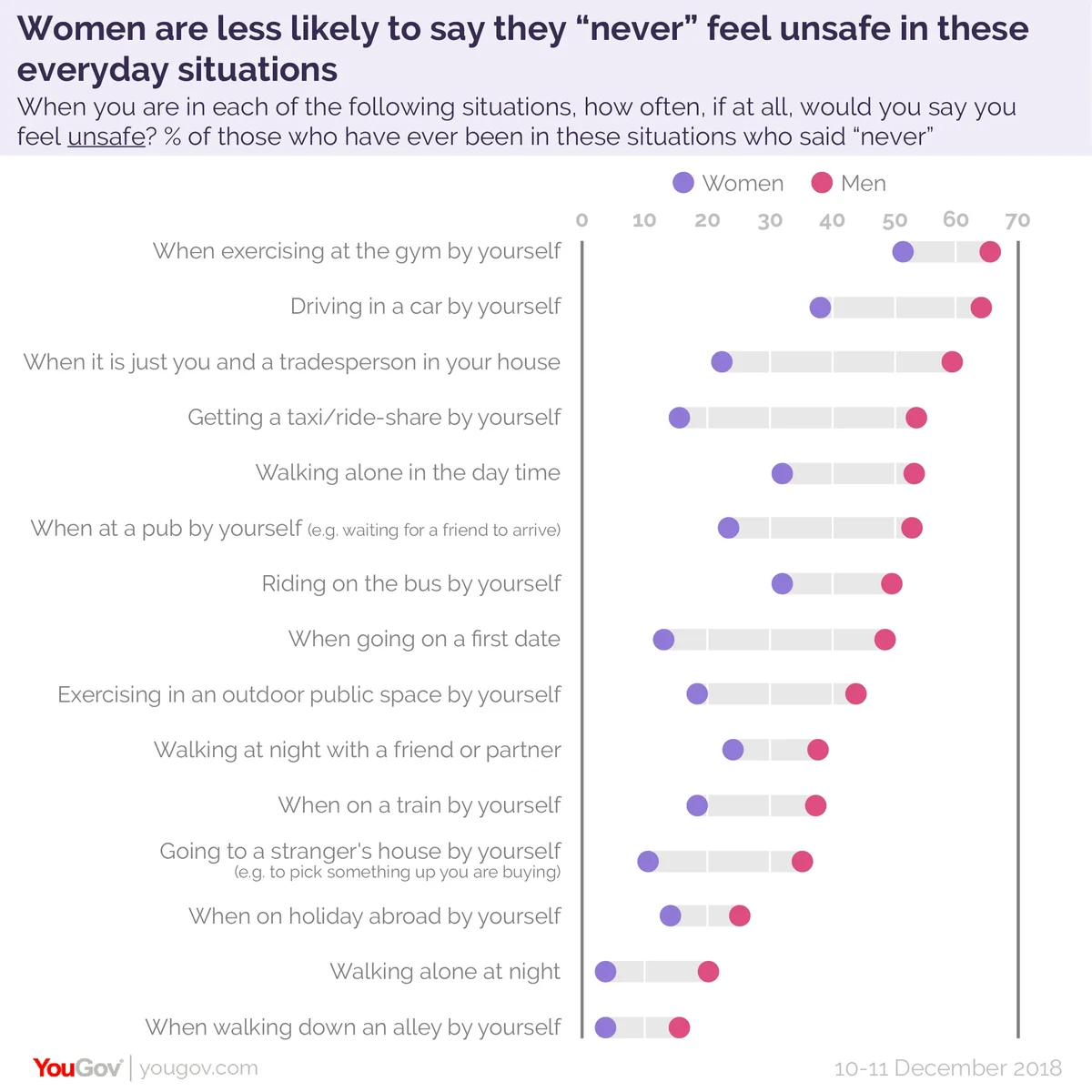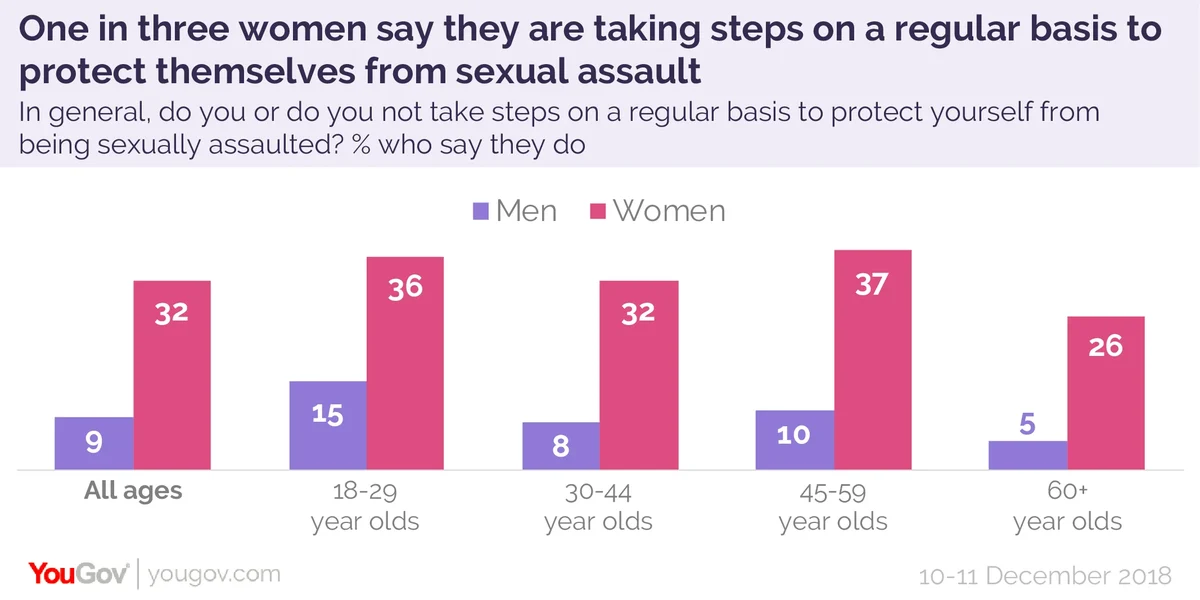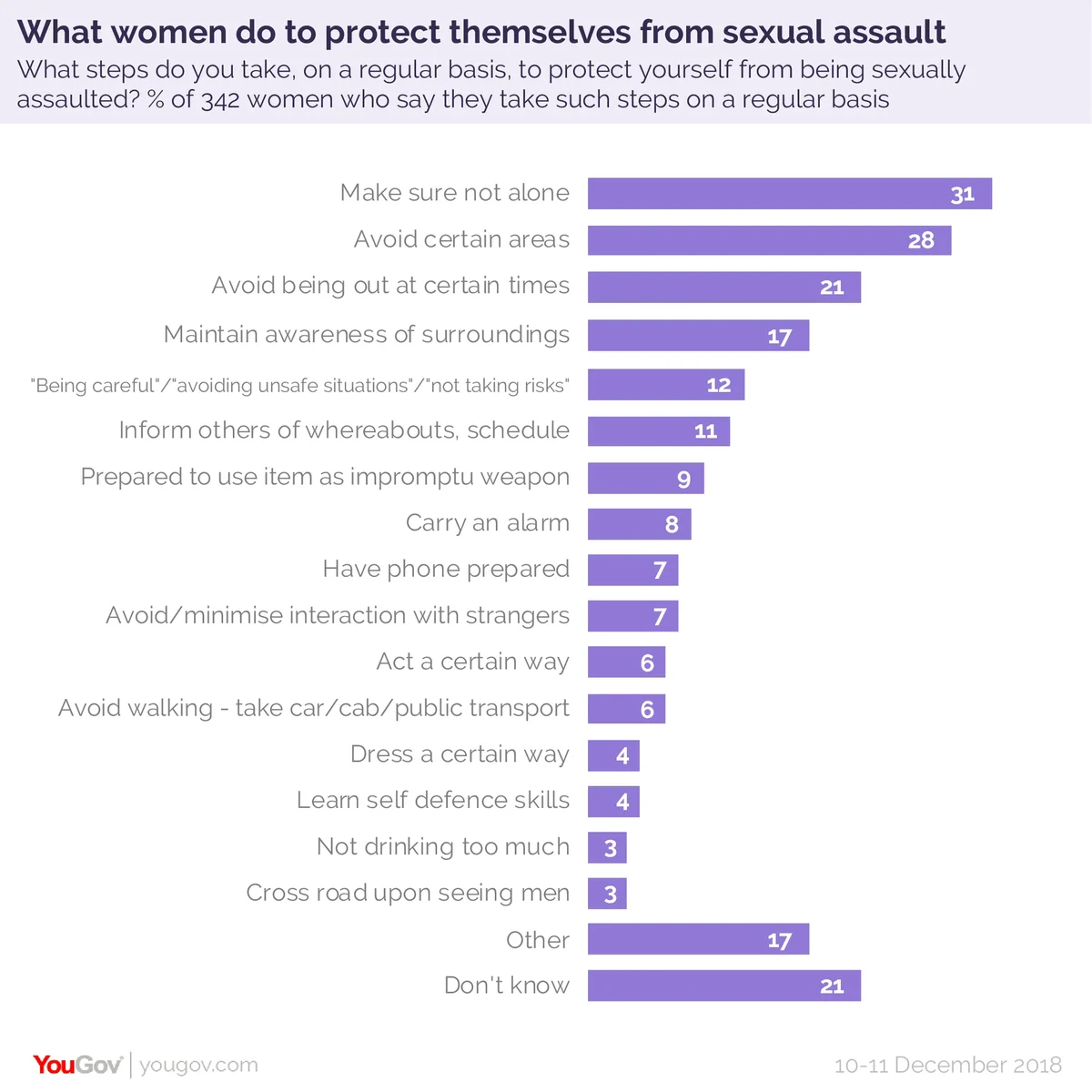YouGov research shows the extent to which everyday Britain feels less safe to women
Most men would never consider that simple acts like walking around town or calling a plumber could be dangerous. Yet a new YouGov Realtime survey reveals that the majority of British women have felt unsafe undertaking these everyday activities.
We asked women if they ever felt in danger during 15 different scenarios. Almost half said they “always” or “often” felt unsafe when walking down an alleyway by themselves (49%) or when walking alone at night (46%). By contrast, only between 11% and 13% of men felt the same.

Women reported feeling unsafe more often than men across every single one of the 15 scenarios we put to people.
The largest difference between genders on a scenario in terms of “never” feeling unsafe was seen in getting into a taxi or ride-share car alone. While 53% of men said that they’ve never felt unsafe doing so, this figure falls to just 15% of women – a difference of 38 percentage points.

A similar chasm exists between the genders when it comes to being home alone with a tradesperson: 59% of men say this has never made them feel at risk, compared to only 22% of women. And while half (48%) of men say they’ve never felt unsafe on a first date, this figure falls to just 13% of women.
One in three women feel the need to take regular steps to protect themselves from sexual assault
Fear of sexual assault will obviously be a large component of why women feel more unsafe in various situations than men. In order to dig further into female experiences in this area, YouGov replicated a question asked by educator Jackson Katz – founder of Mentors in Violence Prevention – which highlights how the prospect of sexual violence permeates women’s day to day lives in a way that it does not men’s.
Asking whether they take steps on a regular basis to protect themselves from being sexually assaulted, one in three women (32%) say that they do. A further 19% answered “don’t know” and 4% “prefer not to say” – only 45% of women are clear that they don’t do so.

We subsequently asked an open question on what these women were doing to protect themselves. The most common responses were avoid being alone (31%), avoid certain areas (28%) and avoid being out at certain times (21%) – often these responses were given in combination, e.g. not walking home alone after dark.
A further 17% said that they made sure to stay alert and maintain a high awareness of their surroundings – often preventing them from simple pleasures like listening to music with their headphones on. One in nine (11%) say they make sure to inform others about their whereabouts and schedule, while 9% say they hold an item (keys are the most frequently cited) that they are prepared to use as an improvised weapon.
When it comes to men, 9% told us that they took steps on a regular basis to protect themselves from sexual assault, although when asked to specify 44% of these couldn’t tell us what they were.

Photo: Getty








